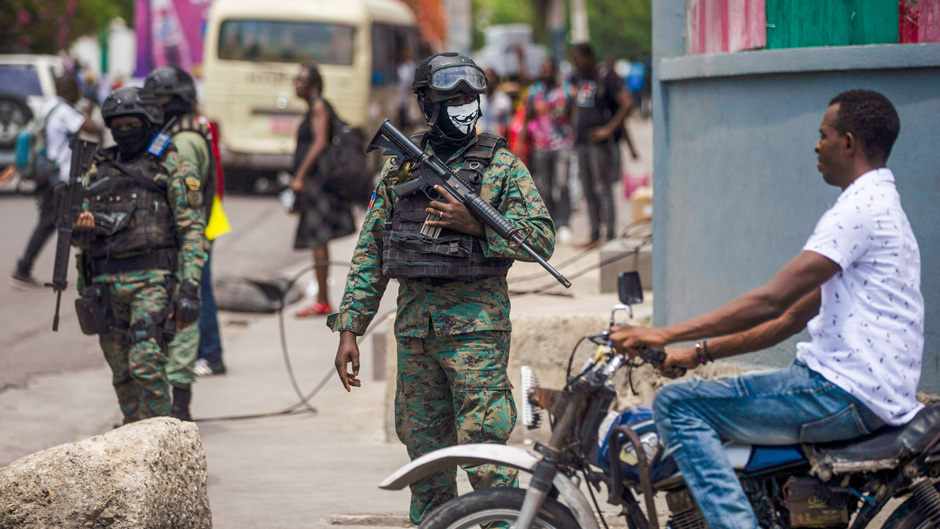One year after Haitian president Jovenel Moïse was assassinated, there are few signs that the perpetrators of the crime will be brought to justice. Meanwhile, the beleaguered country plunges into further economic and political uncertainty.
“What puzzles us Haitians is that one year after the assassination of the president, there is not even a beginning of a process that would lead to prosecution of the masterminds of the crime,” said Louis Herns Marcelin, professor of anthropology at the University of Miami and founder of Interuniversity Institute for Research and Development (INURED).
“The Haitian judicial system does not show any capacity to take charge of this investigation,” the Haitian native added.
Forty people were arrested after the July 7, 2021, murder of Moïse, who was killed in his home. Some of those included high-ranking police officers, informants for the United States Drug Enforcement Administration, and a group of former Colombian soldiers. But for a multitude of reasons, four of the judges appointed to lead the prosecution of the crime have stepped down, said Marcelin.
The U.S. Department of Justice has stated that a group of approximately 20 Colombian nationals and a group of Haitian Americans participated in a plan that “ultimately resulted in a plot to kill the president,” according to news reports. The U.S. holds three prisoners accused of participating in the crime.
In another troublesome development, Ariel Henry, the current prime minister of Haiti, fired government officials who summoned him for questioning in the president’s assassination. His phone records show that he had been talking to a man accused of masterminding the assassination, The New York Times reported. Henry has denied any wrongdoing.
In the meantime, the country has become a land without rule of law, Marcelin pointed out, dominated by gangs that lead turf wars and terrorize neighborhoods. Everyday life—already difficult and compounded by the COVID-19 pandemic—has become untenable.
“The social instabilities that we had before the president was assassinated have compounded into further fragmentation of Haitian society,” said Marcelin. “We have corruptive forces that prevent Haitians from leading daily lives. They cannot go from one neighborhood to the other without fear of kidnapping,” he added.
“All this makes young people want to fly,” Marcelin continued. “They want to flee the country to go anywhere else by any means necessary.”
In desperation, thousands of Haitian migrants have taken to the sea in the hopes of reaching U.S. shores. Others have made their way to Latin American countries and made the trek to the U.S. southern border.
In an ongoing study published by INURED, a Haiti-based research institute, it was estimated that 380,000 Haitians fled the country since the devastating 2010 earthquake.
About 20 percent of those who fled were “the cream of the crop” of Haitian society—young people aged 18 to 29, who had higher education degrees, according to Marcelin.
“The brain drain of educated Haitians is one of the biggest tragedies that has affected the country,” he said. At first, many of these young people settled in Chile and Brazil, taking jobs in the agricultural field.
But during the beginning of the pandemic, when Haitian migrants began experiencing racism and ostracism in the Latin American countries, many tried to cross the Mexican border into the U.S, Marcelin noted.
He said that he believes Haitian migration will continue even though the Biden administration has repatriated thousands of Haitians in the past two years. Many of these individuals did not receive legal protection and an opportunity to apply for asylum, said Marcelin.
Many Haitians feel troubled by the continued U.S. support of Henry, given his implication in Moïse’s murder and the delayed elections, said Marcelin.
“Haitians will continue to come,” he said. “The U.S. must articulate its foreign policy toward Haiti clearly. It is not good for the U.S. to maintain the situation as it is, because it is a danger for this country. For security reasons, it cannot have Haiti drifting away.”

